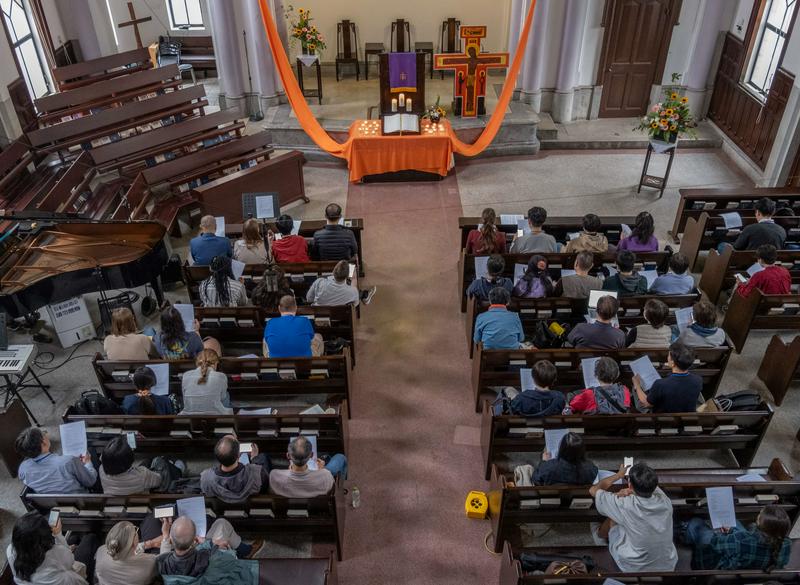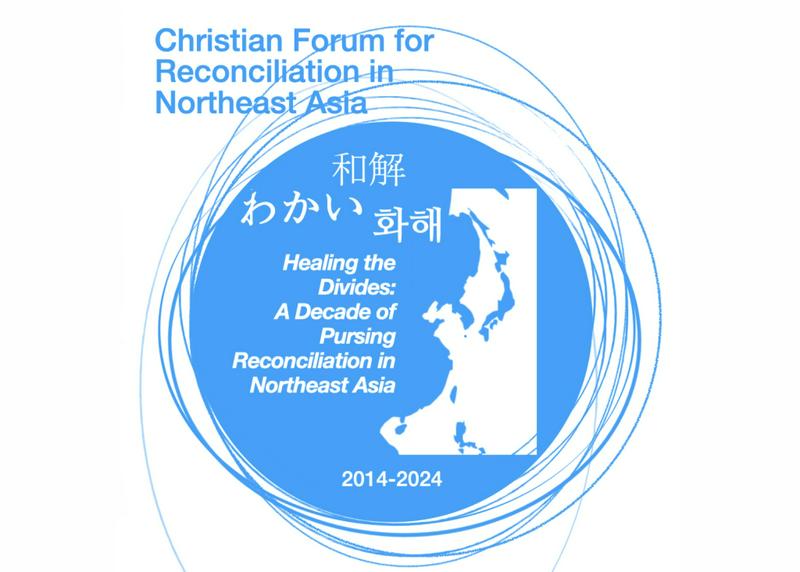The 11th Christian Forum for Reconciliation in Northeast Asia opened in Taiwan, attracting more than 70 Christians from Asia and across the world.
Initiated by Duke Divinity School's Center for Reconciliation, the Mennonite Central Committee, and colleges and institutions in Northeast Asia, the annual forum centers on the ministry of reconciliation.
Conducted at Presbyterian Bible College in Hsinchu from March 11 to 16 this year, the forum was themed “Healing the Divides: A Decade of Pursuing Reconciliation in Northeast Asia.”
To forward the ministry of reconciliation in the Northeast through Christian leadership, community and healing across divides, prophetic witness, and catalysts for collaboration and new initiatives, the forum adopts the phrase "Word Made Flesh," examining the three critical dimensions that it contains: theological ("the Word"), contextual ("became flesh"), and practical ("and dwelt among us"), according to 2 Corinthians 5:18. The landmark gathering embraces four themes through the theological journey: new creation, lament, hope, and call.
Edgardo Colon-Emeric, the dean of Duke Divinity School, gave a devotional on "new creation" to start off the first morning. He listed out two points for healing divides and pursuing reconciliation: doing things that are counterintuitive and countercultural, as well as being honest and unafraid of shadows. Stressing that Christians are eschatological persons and the church shines with a borrowed light from Christ, Colon-Emeric was convinced that the shepherd Jesus would lead the participants with hope and passion for the future “new we.”
Dr. Chris Rice from the Mennonite Central Committee United Nations Office delivered a devotional on lament on the second morning. He recalled the forum conducted in Nagasaki, Japan, in 2015: when a Japanese pastor was shaking at a small museum telling the story of Japanese military atrocities against Korea and China, a Korean Christian spoke to him, “We must never let this happen again.” The “new we” was born. Quoting Luke 1:78–79, he shared God’s way of peace: as Jesus tells Christians to “love your enemies,” God intends friendship between enemies by holding truth and mercy together. “God’s way of peace takes sides against abuse... To be a bridge means to walk on both sides. For the sake of the gospel.”
Richard Hays, an American New Testament scholar and George Washington Ivey Professor Emeritus of the New Testament at Duke Divinity School, gave a speech on hope. Although the word “hope” is not a frequent word used in the New Testament, the professor talked about hope in three Roman passages. “Hope is specifically grounded in trusting God’s promise.” He cited the story of Abraham in Romans 4 to illustrate Paul’s hope in Romans 5. Hays continued that the theology of apocalyptic hope Paul describes in Romans 8:18–25 “is a picture of the whole creation being set free from bondage,” namely bodily resurrection and restoration. Paul shared his third hope for the community in Rome after appealing to them to build others up and to follow the self-giving example of Christ.
“It’s just as unrealistic as the dream of a child for Abraham and Sarah in their old age. It’s just as unrealistic as God’s healing of our pain, frustration, and suffering through pouring his love into our parched, angry spirits in our time. It’s just unrealistic as God’s healing of creation’s bondage to death by raising Jesus and ultimately raising the dead. But no matter how unrealistic it may seem, all of that healing and restoration are already being embodied in the church. The church is a sign of the healing of all creation,” Hays said.
Professors and ministry leaders led plenary sessions throughout the days, along with a country group meeting. A pilgrimage was carried out to visit the 228 Memorial Museum.
The plenary speakers included David Wang from Fuller Theological Seminary, Yuko Fukushima from Aoyama Gakuin University, and Lung-Kuang Huang from the Bible Society in Taiwan.
A total of 73 people from the United States, Canada, mainland China, Hong Kong, Taiwan, Japan, and Korea gathered together.













